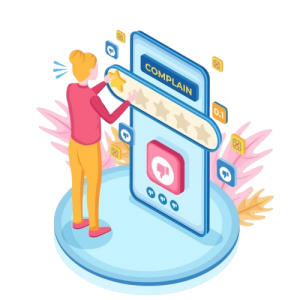In the world of online marketing, understanding the various advertising models is essential for businesses looking to optimize their campaigns and achieve their goals. One of the most popular models is CPC advertising, or Cost Per Click advertising. This blog delves into what CPC means, its advantages, how it compares to other advertising models like CPM (Cost Per Mile), and the platforms that facilitate CPC ads.
What is CPC Advertising?
CPC advertising is a model where advertisers pay a fee each time one of their ads is clicked. Unlike other models that charge based on impressions or actions, CPC focuses on engagement, ensuring that advertisers pay only for actual traffic driven to their website. This model is particularly popular for its direct correlation to potential sales, making it a go-to choice for many businesses.
How CPC Advertising Works
When a user performs a search query, ads related to that query may appear at the top or side of the search results. Advertisers bid on specific keywords relevant to their business. When someone clicks on their ad, the advertiser pays the predetermined CPC rate. This rate can fluctuate based on various factors, including competition for keywords, ad quality, and user behavior.
Key Components of CPC Advertising
- Keyword Selection: Advertisers must select keywords that are relevant to their products or services. This involves research and analysis to find terms that potential customers are using.
- Bidding: Advertisers enter a bidding process where they set a maximum amount they are willing to pay for each click. This is known as the bid amount.
- Ad Quality: Search engines often assess the quality of the ad and landing page. High-quality ads may benefit from lower CPC rates and better placements.
- Performance Tracking: Continuous monitoring of the ad performance is essential to refine and optimize campaigns over time.
Advantages of CPC Advertising
CPC advertising offers several benefits that can make it an appealing choice for marketers:
Targeted Traffic
CPC ads allow businesses to target specific demographics, interests, and behaviors. This means that the traffic driven to your site is more likely to convert, making your ad spend more efficient.
Budget Control
Advertisers can set daily budgets and maximum CPC rates, ensuring that they have full control over their ad expenditures. This helps prevent overspending and allows for effective budget allocation.
Measurable Results
CPC advertising provides detailed analytics and reporting, enabling advertisers to track the effectiveness of their campaigns. Metrics such as click-through rates (CTR), conversion rates, and cost per conversion can be easily analyzed.
Quick Implementation
CPC campaigns can be launched quickly. Advertisers can set up their campaigns, select keywords, and start driving traffic to their websites within hours.
CPC vs. CPM Advertising
While CPC advertising focuses on clicks, CPM (Cost Per Mille) advertising charges advertisers based on the number of impressions (or views) they receive, typically measured per 1,000 impressions.
When to Use CPC vs. CPM
- CPC Advertising: Best suited for campaigns aiming for immediate actions, such as lead generation or sales, as it directly correlates to user engagement.
- CPM Advertising: Ideal for brand awareness campaigns where the goal is to reach a large audience, even if immediate clicks or conversions aren’t the primary focus.
Advantages of CPM Advertising
- Brand Visibility: CPM can enhance brand recognition by putting your ad in front of a wide audience.
- Cost-Effective for Large Audiences: If the goal is mass exposure, CPM can often be more economical than paying for each click.
Popular CPC Advertising Platforms
Various platforms enable businesses to run CPC advertising campaigns, each offering unique features and benefits.
Google Ads
Google Ads is the largest and most widely used CPC advertising platform. It allows advertisers to create text, display, and shopping ads that appear in search results and on partner sites.
Key Features of Google Ads
- Extensive Reach: Access to millions of potential customers through Google’s vast search and display network.
- Targeting Options: Advanced targeting options, including location, demographics, and interests.
- Analytics and Reporting: Robust analytics tools for tracking campaign performance.
Bing Ads
Bing Ads is a competitor to Google Ads, offering similar CPC advertising opportunities but often at a lower cost per click.
Key Features of Bing Ads
- Less Competition: Lower competition can lead to lower CPC rates.
- Integration with Microsoft Products: Integration with platforms like LinkedIn can enhance targeting capabilities.
Facebook Ads
Facebook Ads operates on a CPC model, allowing businesses to target users based on their interests and behaviors on the social media platform.
Key Features of Facebook Ads
- Rich Targeting Options: Ability to target users based on detailed demographic and interest-based data.
- Visual Content: The ability to use images and videos in ads can enhance engagement.
7search PPC
7Search PPC is a pay-per-click advertising platform designed to help businesses reach their target audience through targeted online ads.
Key Features of 7Search PPC
- Keyword Targeting: Advertisers can select specific keywords to trigger their ads, ensuring they reach users who are searching for relevant products or services.
- Cost-Effective Bidding: The platform offers competitive bidding options, allowing advertisers to set their budgets according to their marketing needs.
Best Practices for CPC Advertising
To maximize the effectiveness of CPC advertising, businesses should follow some best practices.
Conduct Thorough Keyword Research
Understanding which keywords your target audience is searching for is critical. Use tools like Google Keyword Planner to find relevant keywords and assess their competitiveness.
Optimize Landing Pages
Ensure that the landing pages where users land after clicking on your ads are optimized for conversion. A clear call-to-action, relevant content, and a seamless user experience can significantly improve conversion rates.
Monitor and Adjust Bids
Regularly review your bid amounts and adjust them based on performance. Increasing bids on high-performing keywords can lead to better placements and more clicks.
A/B Testing
Experiment with different ad copies, visuals, and landing pages to see what resonates best with your audience. A/B testing can help refine your approach and improve overall performance.
Use Negative Keywords
Implement negative keywords to prevent your ads from appearing for irrelevant searches. This can help save budget and improve CTR.
Conclusion
CPC advertising remains a powerful tool in the arsenal of online marketers. By understanding its mechanics, advantages, and best practices, businesses can leverage this model to effectively drive targeted traffic, generate leads, and increase sales. Whether you’re a seasoned marketer or a newcomer to the world of online advertising, mastering CPC can significantly impact your marketing success.
With various platforms available, it’s essential to choose the right one for your goals and continuously optimize your campaigns for the best results. By doing so, you can maximize the potential of CPC advertising and enhance your overall digital marketing strategy.
Frequently Asked Questions (FAQs)
What is CPC advertising?
Ans. CPC advertising is a model where advertisers pay for each click on their ads. It focuses on driving traffic rather than just impressions.
How does CPC differ from CPM advertising?
Ans. CPC charges advertisers based on the number of clicks, while CPM charges based on the number of impressions (or views) an ad receives.
What are some popular CPC advertising platforms?
Ans. Some popular CPC advertising platforms include Google Ads, Bing Ads, Facebook Ads, and LinkedIn Ads.
How can I optimize my CPC campaigns?
Ans. To optimize your CPC campaigns, focus on keyword research, ad quality, landing page optimization, bid adjustments, and A/B testing.
Is CPC advertising cost-effective?
Ans. CPC advertising can be cost-effective, especially for campaigns focused on conversions, as you only pay for actual clicks that drive traffic to your site.











